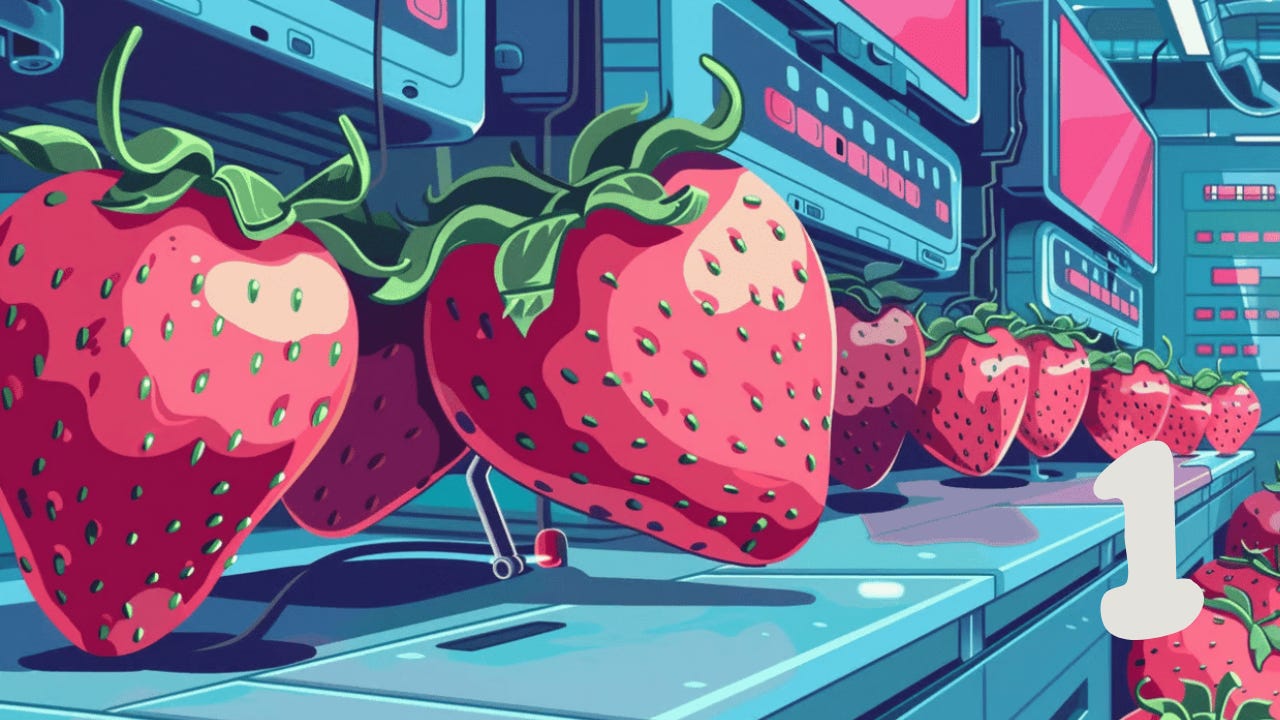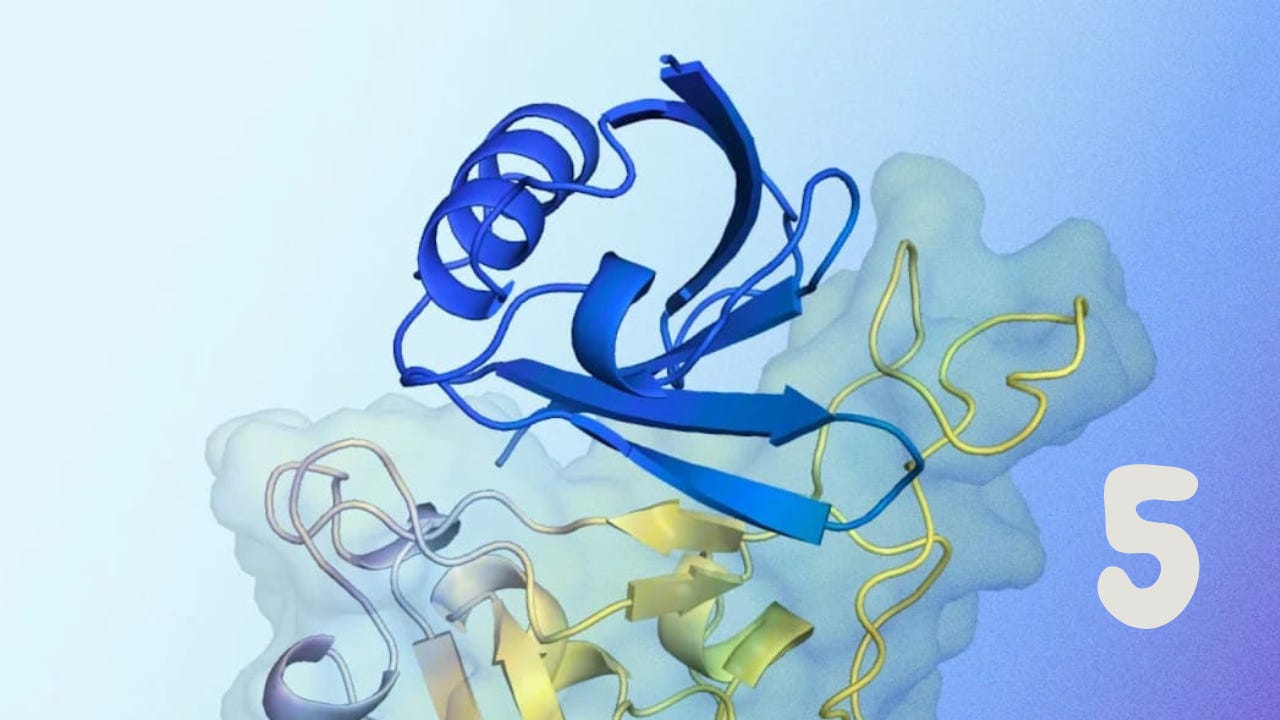🎉 New OpenAI Model, Apple Intelligence, Waymo Crash Data, Laundry-Folding Robots, Google DeepMind Cancer Research
OpenAI's New Strawberry Model, iPhone Meet Native AI, Waymo Doesn't Crash, $1000/mo to Never Fold Laundry, AI Breaks Ground in Cancer Research
Welcome to this week’s edition of AImpulse, a five point summary of the most significant advancements in the world of Artificial Intelligence.
Here’s the pulse on this week’s top stories:
What’s Happening: According to a new report by The Information, OpenAI is planning to release Strawberry, its reasoning-focused AI model, as part of ChatGPT within the next two weeks — earlier than the originally expected fall timeline.
The details:
According to early testers, Strawberry "thinks" for 10-20 seconds before responding, unlike typical AI models that answer immediately.
The initial version will only handle text input and output, not images, making it non-multimodal unlike other recent AI models.
Strawberry is expected to improve complex query handling without requiring users to use specialized prompt techniques like “chain-of-thought-prompting“.
Early testers also said that Strawberry's responses, while slightly better than GPT-4o, may not be worth the extra 10-20 second wait time.
Why it matters: If it lives up to reports, Strawberry will likely excel not only on objective tasks (math, coding) but also subjective ones (like product marketing) and open up a whole new world of practical AI use cases. But with early testers reporting that the model is only “slightly better“, is it really worth all the hype? We’ll find out soon.
What’s Happening: Apple just announced the brand new iPhone 16, built from the ground up with its latest A18 chip and the full suite of Apple Intelligence (AI) features designed to transform how users interact with their devices.
The details:
Writing Tools: AI can rewrite emails and notes, creates custom emojis for conversations, and edits anywhere you type.
Photos and Videos: AI instantly finds specific photos or videos based on natural language search.
Priority and Focus: AI summarizes emails and notifications to highlight what is important and surfaces prioritized notifications to keep you focused on what matters.
Visual Intelligence: With Apple’s new camera, on-device AI analyzes images without storing them and quickly connects to third-party tools like ChatGPT.
Siri: Apple’s virtual assistant can now better understand complicated natural language requests, pull in context to help answer questions, and take actions on your phone at your request.
Why it matters: This marks the next era for Apple and Siri, bringing generative AI capabilities directly to millions of users’ pockets. The tech giant is taking AI seriously, building multiple of its own models and glossing over both Google and ChatGPT as third-party tools.
What’s Happening: A new deep dive into Waymo’s new crash data suggests that driverless cars are significantly safer than human-driven vehicles, with fewer injury-causing crashes and airbag deployments per mile driven.
The details:
Waymo vehicles have traveled over 22 million miles, with only 20 injury-causing crashes reported.
This rate is less than one-third of what's expected for human drivers in similar conditions.
Out of 23 severe crashes, 16 involved human drivers rear-ending Waymo vehicles.
Waymo estimates its vehicles are one-sixth as likely as human drivers to experience crashes triggering airbag deployment.
Why it matters: As Waymo rapidly scales up its robotaxi service — now providing 100,000 rides per week — these safety statistics are crucial. The data suggests that we now have safe self-driving cars, and that these AI-driven cars could significantly reduce road accidents and injuries.
What’s Happening: Weave just announced Isaac, a versatile personal robot designed to help with various household tasks, made in California and set to ship to its first customers in fall 2025.
The details:
Isaac can autonomously tidy up, fold laundry, organize spaces, and perform many other household chores.
The robot butler responds to voice or text commands and can be programmed via an app.
The camera that Isaac carries around folds away and stows in an included enclosure when not in use for privacy reasons.
Weave plans on charging $59,000 (or $1,385 per month for 48 months) with a $1,000 reservation fee for 30 lucky US customers.
Why it matters: The competition for affordable, intelligent, personal robot assistants is continuing to heat up, and it looks like we’ll start to see these robots in homes by 2025. Whether its Tesla’s Optimus, 1X’s NEO Beta, China’s AGIBOT, or Weave’s Isaac — we’re just excited to not fold laundry ever again.
What’s Happening: Google DeepMind just unveiled AlphaProteo, a groundbreaking AI system that designs custom proteins to bind with specific molecular targets, potentially turbocharging drug discovery and cancer research.
The details:
AlphaProteo creates proteins that stick to specific targets like a biological lock and key, which is 3 to 300 times better at creating strong-binding proteins than current methods.
The AI successfully designed binders for 7 out of 8 diverse targets, including cancer-related proteins.
Independent tests showed some AlphaProteo designs could stop SARS-CoV-2 (Covid) from infecting cells and slash years of lab work down to days or weeks.
Why it matters: AlphaProteo could help us block viruses, fight cancer, and treat diseases in new ways using more targeted treatment approaches that could have far less side effects. This could dramatically accelerate drug discovery, potentially saving billions in R&D costs and bring life-saving treatments to patients faster.






